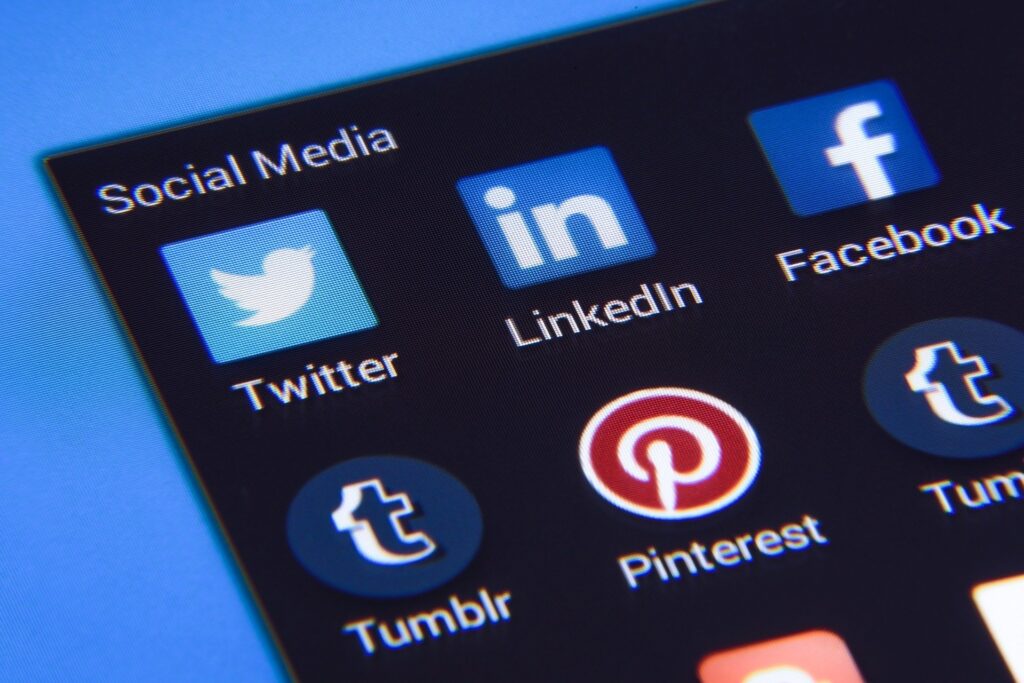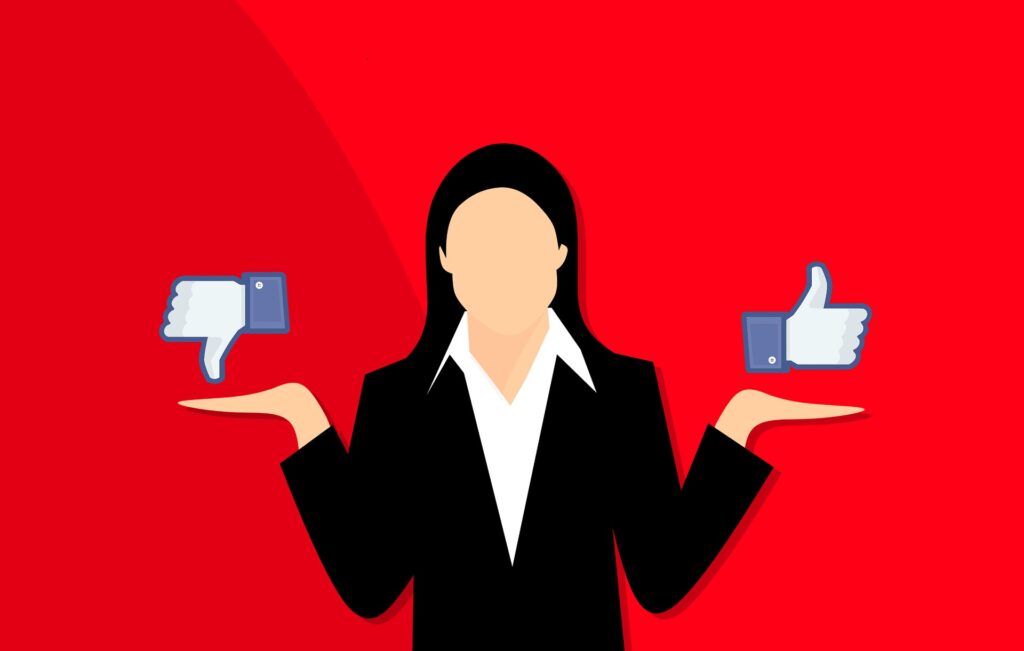Two characteristic behaviors in the anxiety state are our tendency to be self-critical, and to compare our lives negatively with the lives of others. We are also highly vulnerable to any criticisms and judgments directed at us. The rise of social media has amplified these issues.
Every day we are inundated with images of people living glamorous and apparently stress-free lives, and we experience great pressure to appear similarly successful. This is really not helpful at a time when we are struggling, feel like we are failing, and our lives may seem out of control.

Social media has also provided a platform for countless strangers who have never met us to judge, criticize and ridicule us for our appearance, our views, preferences or beliefs. How crazy is that?
Because of their relative anonymity people feel empowered to say things they would never say to our face. In many cases they simply do it to hurt us which in a twisted way makes them feel better. In truth, they are probably just as insecure about themselves. They just hide behind their judgmental comments as they project their insecurities onto us.
Social Media Downsides
The use of social media has become even more prevalent with the corona-virus pandemic forcing vast numbers of us to isolate, and depriving us of face-to-face social contact. Increasingly, many of us have turned to social media for the interactions, approval and affirmation we crave.
There are three major negative effects from participating in social media :
- The need for approval
The likes and compliments we receive over our phones and tablets are addictive. They trigger dopamine and other “feel good” chemicals in our brain. These temporarily alleviate any misery and suffering in our lives. But they are short-lived, and we soon need to get another fix.
But it is never enough, and when we stop, the feeling of withdrawal can be very hard to take. We also open ourselves up to negative judgments too. And, as I explain very thoroughly in my book, judgment is the enemy of acceptance.
- Unfair comparisons
We compare our actual life (the one we hide using carefully curated posts) with the selectively edited and photo-shopped lives of others. If we knew the truth about their actual lives I bet we wouldn’t feel so envious. But if we are really honest with ourselves, we know their lives aren’t the bed of roses they would like us to believe.
3. Criticisms and Personal Attacks
Some people get a kick out of tearing others down, especially attacking those who have encountered some difficulties in life and are struggling and vulnerable. In a perverse and narcissistic way they are attempting to boost their own self-image by diminishing someone else. Inflicting pain so they can feel a bit better by comparison.
Each time they judge and criticize someone else they get a “reward” of a small amount of dopamine. It is a very selfish, destructive and artificial way to boost their self-esteem; but sometimes it’s the only way people know to feel better about themselves.
It doesn’t take much effort to criticize. The perpetrator may be unaware that they do it, or of the potential damage they are inflicting on others. Or they may take a perverse delight in trolling, with the specific intention of hurting someone. Either way, the damage to the recipient is the same.
The Price We Pay
It doesn’t serve us well to attempt to be liked, make believe we have our stuff together, or seek approval by posting flattering and misleading images of our lives. The damage this does is the denial of who we really are beneath the carefully chosen and edited images.
We know who we really are, but we haven’t accepted who we are, and we believe people won’t accept us if they knew the real us.
Disapproval and criticism only has the power and importance that we give it.
Perhaps some people won’t accept us just as we are; but so what?! They are probably not people we want to spend much time with, at least not until they can accept us unconditionally. But know that their disapproval and criticism only has the power and importance that we give it. We can learn to stop taking critical comments from others to heart.

However, until we have made progress with acceptance, we tend to react in a very primal way. We take the comments personally because they resonate with our existing low opinion of ourselves. For that reason, it is very difficult for our anxious minds to dismiss criticism even if it is unfounded, unwarranted, and perhaps from someone who knows nothing at all about us.
So why do we make ourselves miserable on social media seeking the approval of others, comparing our life to their carefully curated images, trying to appear to be something we’re not, and exposing our vulnerable selves to trolls?
And what do we do about it?
Healing Our Self Image
If truth be told, it really isn’t the judgment or criticism from posters on social media that hurts us, but rather our own willingness to accept this criticism, give it credence, and use it to beat ourselves up even more.
One action we can take right away is to reduce the time spent online hoping unreliable and untrustworthy strangers will stroke our ego. Reducing our exposure to criticism and not seeking the approval of others is a great start.
In parallel, we must learn how to give ourselves the love that we have withheld for so long. Self love is so much more powerful than a “like” on Facebook, Twitter or Instagram.
To love ourselves we must first face and accept who we truly are with a level of honesty that perhaps we haven’t before. It helps to remind ourselves that everyone has faults and flaws. That’s what makes us human! Even if we don’t see them on other peoples’ timelines, trust me, we all have them. And yours are not unique.
Little by little, we can accept the things we struggle with and feel embarrassed or uncomfortable about, while reminding ourselves that it is OK to be like that. No-one is perfect, and we don’t have to be either.
Once we accept that, we no longer feel the pressure to be perfect, or to present a perfect image to the world. Honesty about ourselves is so much less effort and less stressful. Give yourself a break! You’ll be happier for it.
Real Life Example
Consider this exchange I had with an anxiety sufferer about social media:
Their post:
“Facebook makes me miserable because I see everyone else has their life together, and mine is falling apart.”
My response:
I would bet that more than a few of those people suffer from anxiety, see your Facebook postings and envy you thinking YOU have it all together!! And don’t be fooled by what people post on Facebook. We ALL struggle, but rarely show it. Much of it is due to low self-esteem, analyzing ourselves, expecting too much of ourselves, not giving ourselves credit for how wonderful we already are, beating ourselves up, and comparing ourselves to some “perfect” image we have of others or of how we think we ought to be, and thinking that it won’t get better until we fix ourselves.
There’s nothing to fix, only acceptance to be learned.
The Acceptance Method will get you in touch with yourself, let you face and accept all of yourself (the strengths you discount, as well as what you think of as your weaknesses), and help you learn to like yourself just as you are. All of it.
You are already wonderful; it’s just your image of yourself that tells you otherwise.
_____
(Images by Photo Mix and mohamed Hassan from Pixabay)







